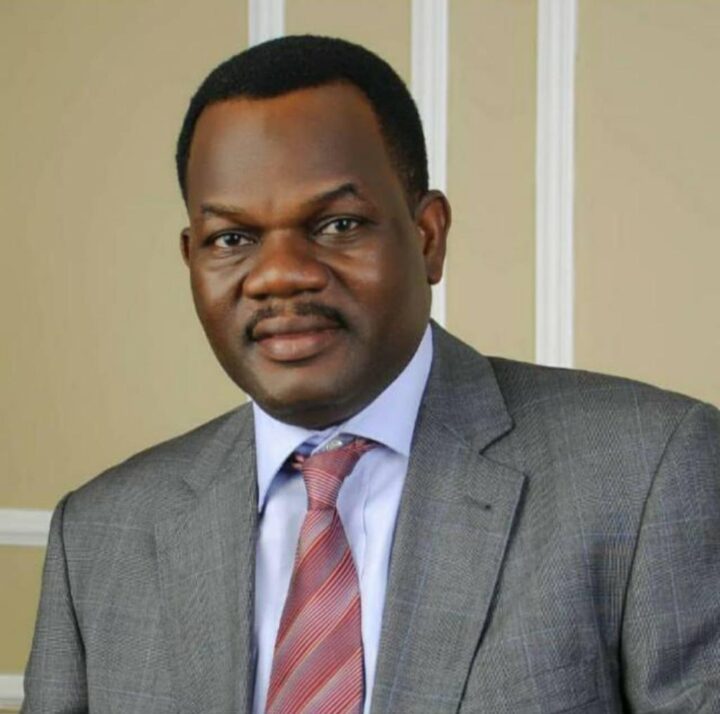Nigeria’s former Director-General of the Nigerian Maritime Administration and Safety Agency (NIMASA), Dr. Ade Dosunmu, has reiterated that the blue economy represents one of the most powerful and sustainable pathways for Nigeria’s economic diversification. Speaking at a maritime stakeholders’ forum in Lagos, Dosunmu urged the government to intensify its commitment to harnessing the vast opportunities embedded in the country’s coastal and marine resources to boost revenue, create jobs, and strengthen long-term economic stability.
He explained that Nigeria, with a coastline of over 850 kilometres and an exclusive economic zone measuring about 200 nautical miles, possesses enormous potential to build a thriving blue economy. According to him, activities such as shipping, fisheries, aquaculture, offshore oil and gas, renewable energy, tourism, and seabed mining could collectively add billions of dollars annually to the country’s gross domestic product if adequately developed and regulated.

Dosunmu argued that while crude oil remains a key source of foreign exchange, its volatility, coupled with global calls for cleaner energy, makes it imperative for Nigeria to diversify urgently. He noted that the maritime and blue economy sector is capable of reducing over-dependence on oil while enhancing food security, supporting climate adaptation, and strengthening Nigeria’s position in global trade.
The former NIMASA DG commended the establishment of the Ministry of Marine and Blue Economy by President Bola Tinubu, describing it as a bold and visionary move. He added that the creation of a dedicated ministry signals a strong intent by the government to tap into untapped ocean resources and place Nigeria at the forefront of Africa’s maritime development. However, he cautioned that success will depend on proper policy direction, effective regulation, and transparent implementation.
Dosunmu highlighted that despite Nigeria’s rich maritime assets, several challenges persist, including weak infrastructure, maritime insecurity, illegal fishing, poor port efficiency, and underutilisation of inland waterways. He stressed that overcoming these obstacles will require not only investment but also strong collaboration between government agencies, the private sector, and international development partners.
He further pointed out that investment in research, innovation, and capacity building must form the backbone of Nigeria’s blue economy agenda. According to him, universities and maritime training institutions should be empowered to develop expertise in marine sciences, oceanography, shipping logistics, and offshore engineering to build the human capital needed for sustainable growth.
On employment opportunities, Dosunmu observed that the blue economy has the capacity to absorb millions of youths into productive sectors such as aquaculture, shipbuilding, port services, and marine technology. He said Nigeria’s demographic structure, with its youthful population, makes it ideally positioned to maximise these opportunities if the right policies are in place.
He also urged the government to ensure that the blue economy is driven by sustainability principles, noting that unregulated exploitation of ocean resources could have devastating environmental consequences. He called for a balance between economic activities and ecological preservation, emphasising that Nigeria must adopt international best practices in line with the United Nations Sustainable Development Goals (SDGs).
The former DG referenced successful examples from countries like Singapore, Indonesia, and Norway, which have leveraged their maritime resources to build resilient economies. He said Nigeria must learn from these global benchmarks, adapt their models, and design policies that fit its unique realities. “We cannot afford to pay lip service to the blue economy. It is an economic lifeline that can secure our future if harnessed properly,” he declared.
In terms of revenue generation, Dosunmu projected that Nigeria could earn billions of dollars yearly from shipping, fishing, and marine tourism if the sector is efficiently managed. He added that strengthening maritime security, especially in the Gulf of Guinea, will be crucial in attracting foreign investors and boosting confidence in Nigeria’s waters.
He also appealed for greater regional cooperation, noting that maritime challenges such as piracy, illegal fishing, and marine pollution transcend national borders. He suggested that Nigeria should work closely with neighbouring countries and regional bodies to establish strong frameworks for ocean governance.
Stakeholders present at the forum echoed his sentiments, agreeing that the blue economy remains an underexplored frontier for Nigeria’s transformation. They urged the Federal Government to develop a comprehensive roadmap with measurable targets, timelines, and monitoring mechanisms to ensure that the vision translates into tangible results.
Dosunmu concluded by stressing that the blue economy is not a “future aspiration” but an urgent priority. He emphasised that with the right political will, Nigeria can unlock vast new streams of growth, reduce unemployment, strengthen food production, and reposition itself as a major maritime hub in Africa.
Support InfoStride News' Credible Journalism: Only credible journalism can guarantee a fair, accountable and transparent society, including democracy and government. It involves a lot of efforts and money. We need your support. Click here to Donate
